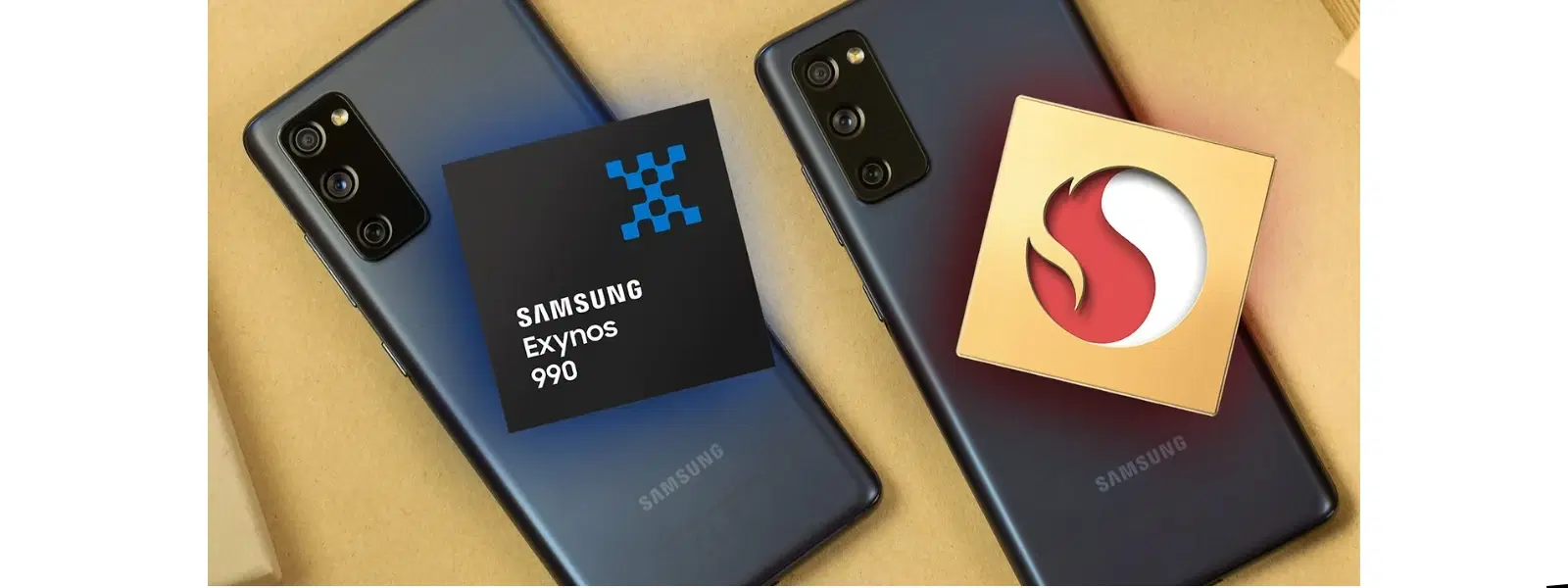
Consumer Electronics
•05 min read

Buy SAMSUNG Galaxy Watch8 Wi-Fi+BT+GPS Wear OS Smartwatch (44mm Super AMOLED Display, 3nm Processor, Fall Detection, Sport Strap) online at best prices from Croma. Check product details, reviews & more. Shop now!
When it comes to powering Samsung smartphones, there is a lively debate over which processor is the best fit for your needs. The two technologies that fuel these devices – Exynos and Snapdragon – both offer unique advantages in terms of performance, power efficiency, and user experience. In this blog, we explore these differences to help you make a well-informed decision based on what matters most to you.
Exynos and Snapdragon are two names that have become synonymous with innovation in mobile technology. Developed by two leaders in the tech world, these processors have been at the heart of many Samsung smartphones. Exynos has been a proud creation of Samsung, a name that resonates with reliability in many parts of the world. Meanwhile, Snapdragon, renowned for its power and adaptability, has consistently pushed the performance envelope. The processors play a crucial role not only in determining the speed and efficiency of your device but also in shaping your overall user experience.
The comparison between these two stems from real differences in regional models. In some parts of the world, you might find smartphones powered by Exynos, while others prefer the Snapdragon variant. This variation exists because each processor offers distinct benefits, with certain regions opting for one to better match local performance and network requirements.
In terms of raw performance, benchmark tests reveal clear differences between the two. For instance, head-to-head comparisons show that Snapdragon often provides enhanced performance in CPU speed and multitasking, according to recent industry benchmark tests. Specific chips, such as the latest Snapdragon 8 Gen 3, have been noted for their responsiveness in real-world applications. However, Exynos processors, like the Exynos 2400, are known to hold their ground well and ensure excellent everyday performance.
A key factor for many users is battery longevity. Exynos processors are often admired for their energy efficiency, helping extend battery life even during heavy usage. On the other hand, Snapdragon chips are designed to strike a balance between power consumption and high performance. This means that while using intensive applications or multitasking, both processors offer their strengths – with Exynos leaning towards efficiency, and Snapdragon focusing on sustained performance. Keywords such as "exynos vs snapdragon battery life" can help users better understand these distinctions.
Another pivotal aspect of any mobile processor is how well it manages heat. Snapdragon chips are frequently observed to excel in thermal management, keeping the device cooler even during prolonged usage. This efficiency in heat dissipation contributes to a more comfortable experience while using resource-demanding apps or while gaming. Exynos, while slightly behind on this front, still provides a reliable experience with an emphasis on energy optimisation. Including secondary keywords like "snapdragon vs exynos thermal management" can enhance SEO visibility.
For enthusiasts keen on gaming, the choice of processor can significantly impact the visual and interactive experience. In the realm of gaming, Snapdragon processors often offer higher FPS stability and lower latency. Gamers appreciate a smooth, responsive experience that complements the fast pace of modern mobile games.
When it comes to graphics processing, both Exynos and Snapdragon have evolved to meet high expectations. Snapdragon chips tend to offer robust GPU performance, ensuring that high-resolution visuals render according to plan. Exynos processors, while focusing on power efficiency, incorporate advanced graphics capabilities that render games and multimedia content beautifully. With innovations such as AI enhancements complementing gaming and multimedia experiences, the decision rests on your specific preferences between pure gaming performance and energy-efficient operation.
Insight Corner: "Did You Know?"
Snapdragon processors are often favoured for their superior thermal management and gaming performance, while Exynos processors excel in energy efficiency and battery life optimisation.
At the end of the day, the best processor is not just about high benchmark scores, but how it performs in everyday life. Exynos processors are known to offer seamless multitasking abilities, meaning apps load quickly and transitions are smooth. Snapdragon chips shine when you demand top-notch performance for gaming or intensive tasks. Both technologies have been designed keeping the modern user's needs in mind, ensuring optimal balance between performance and power consumption.
There are pros and cons for each. Exynos is ideal for those who prioritise energy efficiency and longer battery life, whereas Snapdragon is tailored for users who require brisk performance and impressive graphical output. Depending on whether you are a casual user, a professional, or a gaming enthusiast, the decision on which processor to choose will hinge on the daily challenges you face with your device.
Looking ahead, the landscape for mobile processors is set to change with exciting innovations on the horizon. Both Exynos and Snapdragon are preparing for a future where AI integration and 5G capabilities play an increasingly important role in everyday mobile experiences. Rumoured advancements like the Exynos 2500 and Snapdragon 8 Gen 4, based on industry speculation, hint at even greater improvements in performance, energy management, and connectivity.
These developments are expected to have a significant impact on upcoming Samsung smartphones, including the much-anticipated Galaxy S and Note series devices. While the talk of standardising processors across different regions remains speculative, one thing is clear: innovation continues at a rapid pace. As technology evolves, users can expect more reliable and efficient devices that harness the best of both worlds.
Exynos offers better battery optimisation, while Snapdragon excels in performance and gaming. The choice depends on your priorities.
Exynos processors are known for their energy efficiency, superior battery performance, and reliable multitasking capabilities.
Different regions have varying performance and connectivity requirements, leading to the use of Exynos in some areas and Snapdragon in others.
Snapdragon 888 is preferred for its gaming prowess and thermal management, while Exynos 2200 is notable for enhancing battery life and graphics performance.
Exynos processors excel in energy efficiency and battery life, while Snapdragon chips are known for superior performance and gaming capabilities. The choice depends on your individual needs.
Overall, the comparison between Samsung Exynos and Snapdragon processors comes down to a balance of performance traits. Exynos stands out for its energy efficiency and strong battery performance, making it an excellent choice for everyday use. Snapdragon, however, offers a performance-oriented approach that is particularly appealing for gamers and users who demand high-speed operation under rigorous conditions. With each processor showcasing unique strengths, your decision should align with what will enhance your day-to-day activities the most.
In the context of seamless shopping and smart transacting, platforms like Tata Neu stand out by rewarding every purchase with NeuCoins, providing special benefits such as earning up to 5% NeuCoins on every Tata Neu purchase and express delivery for orders placed before 6 PM. Just as choosing the right processor can enhance your mobile experience, making informed decisions on where to shop can greatly enrich your overall lifestyle. Both decisions empower you – be it through superior performance or enhanced rewards – as you progress in life with convenience and confidence.